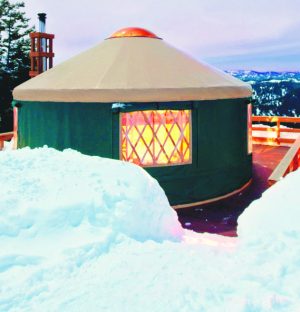October 27, 2011 – An Olympic Games Impact Study examining the effects of the Vancouver 2010 Games has been released. The report, which examines socio-cultural, economic and environmental impacts of the Games, is available at the University of British Columbia’s Centre for Sport and Sustainability website: www.css.ubc.ca.
“This study confirms what we all saw during the Vancouver 2010 Olympic Winter Games,” said Canadian Olympic Committee President Marcel Aubut. “The sense of pride that swept up our nation was a turning point in our nation’s history. The Games injected millions into the local economy and great strides have been made in making these events more environmentally sound.”
The University of British Columbia was commissioned by the Vancouver 2010 Organizing Committee (VANOC) to complete the survey. Since VANOC’s wrap-up, the COC presented the study’s results to the IOC at the 123rd IOC Session in Durban, South Africa. This is the third of four reports. The first took baseline measurements in the Vancouver area from which to compare future findings. The second examined Vancouver in the pre-Games window. This report looks at the impacts during the Games themselves. The Post-Games Report will summarize findings from previous reports, and provide final conclusion about the impact of the Olympic Games in 2013.
Socio-cultural impacts
– Inclusion – Aboriginal groups and minorities participated in the bidding, planning and staging of the Games. Data from opinion polls conducted before and after the Paralympic Games showed that public awareness of people with disabilities increased as a result of the Games.
– Sport – Municipal, provincial and federal governments introduced policies and projects to leverage the Games, including a program for excellence in sport, Own the Podium,that likely increased the number of medals won by Canadian athletes.
– Arts and culture – Arts and culture were a significant aspect of the hosting of the 2010 Games
– Housing – There were no new data related to homelessness and affordable housing subsequent to the Pre-Games Report. The report noted that possible media attention and local advocacy efforts may have catalyzed government efforts to address these issues. The following OGI report is expected to provide further insight on these issues.
Economic impacts
– Business and jobs – New businesses and new jobs were created that related directly to the Olympics such as venue operation, as well as indirectly such as hotel and restaurant jobs.
– Real estate – Increases in the cost of hotel stays and in real estate prices in the year 2010 were both potentially due to the Games.
– Tourism – Increases in YVR airport traffic (passenger and freight) and in visitor spending around the time of the Games were both potentially due to the 2010 Winter Games.
– Tax revenue – The Games-time report conservatively estimates that the public sector benefited by at least $50 million (CAD) in total tax revenue from Olympic activities.
Environmental impacts
– Greenhouse gas emissions – Data from VANOC showed that Olympic-related greenhouse gas emissions increased every year following 2005, with an eight-fold increase during Games-time compared to the organizing period, mainly due to transportation to and around Vancouver.
– Mode of travel – During the Games, travel into and out of the downtown core (where many Games-related events were held) increased. During this period, the share of low-impact modes of travel into and out of the downtown core became the dominant mode of travel over personal vehicle use.
– Energy consumption – Olympic-related energy consumption for facility operation and transportation during the Games was almost an equal share between fossil fuels and renewable sources. Most of the energy (80 per cent) was used for venues and facilities.






![National camp action [P]...](https://skitrax.com/wp-content/uploads/2019/08/Duluth-4-2019-08-08-at-10.46.51-AM-300x246.png)
![Matt Liebsch on the CXC Elite Team [P] CXC...](https://skitrax.com/wp-content/uploads/2019/08/Matt-Liebsch-CXC.2-525x700.4-300x267.jpg)
![Dan LaBlanc [P]...](https://skitrax.com/wp-content/uploads/2019/08/Dan-LaBlanc-img_1855.3.jpg)
